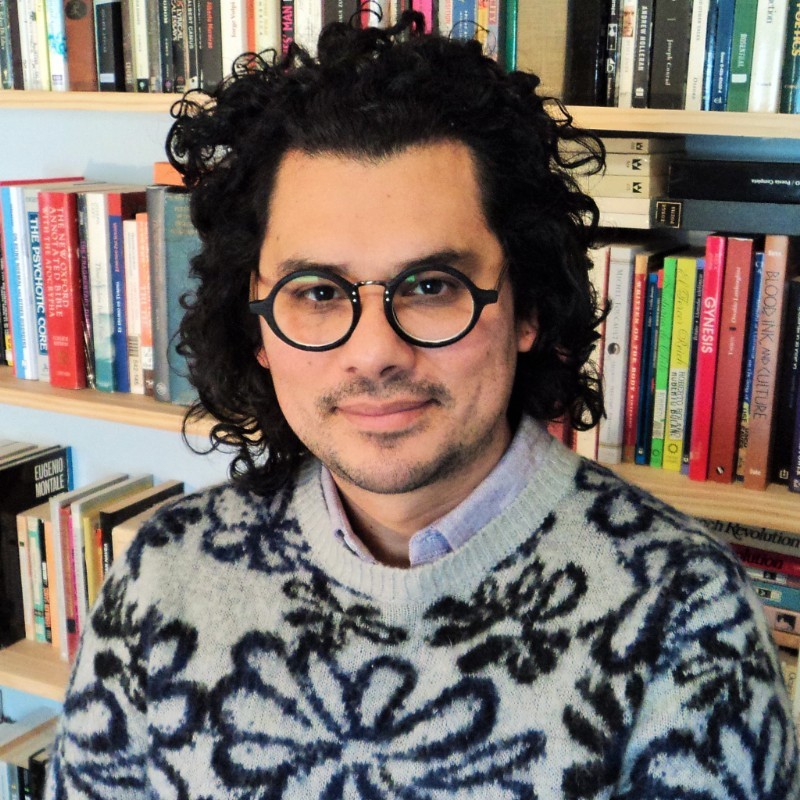This blog post is part of the Professional Stories Series, which collects stories about professionals with a degree in Spanish who did not follow the traditional path of being a school teacher or a university professor. Questions focus on skills, strategies for the job search, and career advice.

In today’s post, we interviewed Osvaldo de la Torre, a Language Quality Manager at Multilingual Connections. Osvaldo speaks English, Spanish, and French.
What is your job title and what do you do?
Language Quality Manager at Multilingual Connections, a language services company based in Chicago. I oversee the quality of our language services; this includes creating documentation and style guides, managing glossaries, term bases, and translation memories, collaborating with various departments to develop and implement quality assurance frameworks, as well as freelance testing, training, and engagement processes.
What are the three most important skills needed for the job that you do?
- Empathy. The ability to put myself in someone else's shoes; in my case, putting myself in the position of clients and freelancers. From those perspectives, to think of potential issues and creative, fair solutions to those issues.
- Interpersonal skills, which includes the ability to connect with the people I work with on a human, and emotional level; it also includes the ability to communicate issues and solutions in a way that is clear, respectful, and positive.
- Delegation, which is the ability to trust others to perform tasks that I may think only I would do well. As a freelance translator, I did it all myself (the job itself and all the administrative tasks involved); as a manager, it is important to allow people to help, to take initiative, to share and concretize their ideas, which in turn fosters a sense of trust and collaboration between me and my colleagues, and also prevents the people who work with me from getting bored and me, the person delegating, to feel overwhelmed by the job.
How was the job search? What strategies did you implement to get the job? How did you tailor your résumé?
I did several things to successfully transition from academia to the translation field:
- I had informal interviews/conversations with others who had changed careers before me, who gave me tips, practical information, and encouragement.
- I attended workshops specific to the topic of "non-academic jobs" for people with advanced degrees. I remember, for example, a particularly intense and helpful workshop at the University of Chicago, which introduced me to the concept of the resume and its differences with respect to the curriculum vitae, which I discovered is not used outside of academia.
- I told my friends and family that I was looking for jobs outside of academia, and asked them to refer me or mention me to potential employers, and to keep me in mind for any leads.
- I shared my resume and cover letter with people whose editing or visual layout skills I really trusted and asked them for detailed, honest feedback. I revised my materials several times based on what they said.
- I attended professional events and conferences in the field into which I wanted to transition, which in my case was professional translation, even if I wasn't yet a professional translator myself. I also volunteered for these events, for example being in charge of a "booth"; this was particularly helpful because it gave me free or discounted access to the event and made it way easier to meet people (because if you are in a booth, people come to you!)
- Developing my LinkedIn resume was extremely important. I connected with people through this platform, and still do. I have made very positive connections this way.
- I volunteered. This was a great way to gain experience. I volunteered as a translator for organizations that shared my values. This way, I not only gained experience, but also helped in areas that I found important.
Be patient and give yourself time. Doing these things will take weeks or months. It will take time to network, to develop experience, and to apply for jobs. And chances are you will get rejected many times, but don't give up.
How does a degree in Spanish help you to get your current job? How often do you use the language at the workplace or in activities related to your job?
In my case, having a degree in Spanish was essential. I think it's safe to say that I wouldn't have been able to get my current job without a Spanish degree, given that I work in the "language services industry." While my degree was not in translation itself, it was closely associated with the field. The company that eventually hired me full time, Multilingual Connections, decided to take a chance on me in great part because of my Spanish degree, as it not only provided me with the linguistic competence that they were seeking, but also with a particularly attractive level of the socio-cultural awareness. I use Spanish almost every day. While I no longer do much translation or editing, I do regularly look at the translations we are producing from a quality perspective, must think about creative language choices as well as style and language conundrums and, alongside our in-house Spanish translators, think of quality strategies and frameworks that we can implement.
What career advice can you offer to a student doing a Minor or a Major in Spanish?
I recommend you learn the language very well. At least in the field that I work in, having a very strong command of Spanish is crucial. Knowing the rules of grammar, punctuation, and style, and being able to communicate them clearly to a colleague or client will earn a lot of respect. So I would recommend that you learn how Spanish works, in addition to speaking and writing it naturally. Spanish students have an important advantage over native speakers: because they must learn the theory in addition to the practice, they acquire a unique knowledge regarding its functioning, which native speakers rarely have. Knowing Spanish, particularly in the United States, is a skill that many employers list as "preferred" or "nice to have," and I suspect that will be the case for the foreseeable future.
If you decide to go to graduate school, be open to the possibility --perhaps even the likelihood-- of not getting a job in academia, and embrace it. Working outside of academia opens paths that you will come to cherish and allows you to meet inspirational and kind people with unique and creative backgrounds.
You can connect with Osvaldo via LinkedIn.
I hope you can see that you have multiple opportunities with a degree in Spanish.
